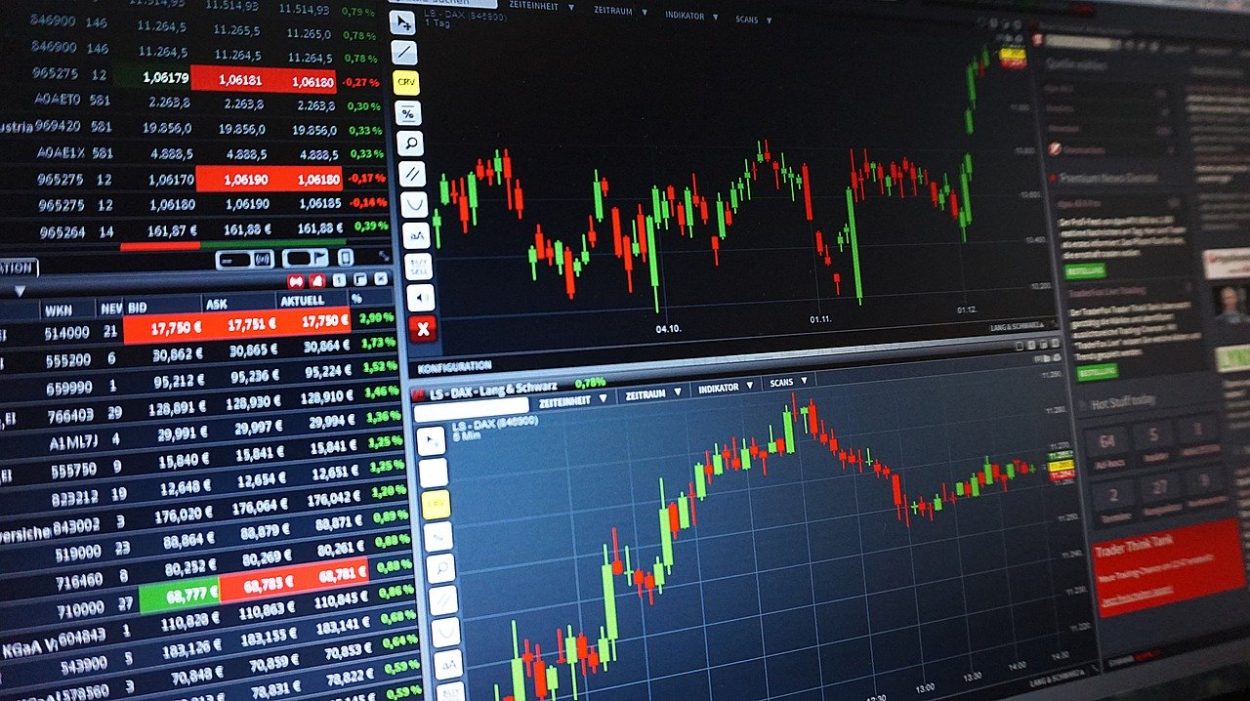
There is nothing like a stock market crash to shine a light on the bad actors in the market. Many of the people who will be exposed will be out and out scam artists. Some of those scams will have been sold thorough mainstream brokerage firms that refuse to spend what it take to actually investigate what they sell.
Many more investors will lose money because the mainstream stockbrokerage firms will continue to offer investors conflicted or unsupported advice. Investors are being told to “stay the course” and stay invested as the market is sliding to an inevitable bottom, perhaps a year away.
Investors who lose money will file arbitration claims against their brokers to recover those losses, just as they did after the crash in 2001 and 2009. This time around they will be joined by many customers of online firms who lost money because those firms failed to operate properly. This is something that has not happened very much in almost 20 years.
Wall Street
I started on Wall Street in 1975 as the NYSE, Federal Reserve and the brokerage firms were changing over to large mainframe computers from the legacy hand written orders and record keeping. There was a lot of skepticism at the time as to whether the computers could carry the load. The SEC mandated that duplicate paper records be kept for several years just in case of an outage.
The market crash in 1987 was the first significant correction where the market was wholly computerized. Before you draw similarities between 1987 and what occurred in the markets last week, remember that the internet was still not widely accessible. The vast amount of information that is available today was not available in 1987.
The Black Monday crash was certainly exacerbated if not caused by computerized, program trading. Program traders were using computers to analyze the data they had faster than others and then use that data to get in and out of the market before other traders caught up. As a result of Black Monday, the NYSE instituted circuit breakers which, until last week, had only been triggered once or twice since 1987.
When the market crashes, customers want to know what is going on and they want to know immediately. This fact should not surprise anyone! Nor should it surprise anyone that securities industry regulators have always taken notice when the customers could not access their brokers or accounts.
The year 1975 was also the year that Wall Street did away with “fixed” commissions and unbundled its two primary customer services of advice and execution. This was the birth of the discount stock brokerage firm and the DIY investor. By 1987, Schwab and the other discount firms had millions of customers.
Stockbroker?
If you still had a stock broker on Black Monday you had someone to talk to. I know many brokers who were returning calls well into the evening on that day. If you used a discount firm, you had to go to their office to access your account and find out what was going on. Many people did just that.
There was a story that went around a day or two after the crash in 1987. When people at one of the discount brokerage houses could not get through on the telephone to place an order, they showed up, en masse at their local office. The story went that there was such a crowd of panicked customers trying to get into one office, that one of the employees was lying on the floor in the break-room in a fetal position.
When it was all over the SEC recommended that discount firms beef up their call centers to handle the overload as trading volume was steadily increasing. Today, most of the large discount firms have local offices supported by call centers. Complaints that “no one picked up” are rare.
Trading
About 10 years later, as the internet made trading from home possible, a lot of people took up the challenge and became “day traders”. Discount firms were opening more accounts than they could handle as the computers they had maxed out. The problem was noticeable.

I went to a conference to hear a representative of the SEC speak to this issue of customer capacity. He told the crowd that “you can only fit so many people in RFK Stadium”. His message was clear, if you don’t have the capacity to service the customers, don’t take them on. No one in the audience was surprised. Since 2000, complaints about lack of computer capacity have been rare as well.
Which brings us to Robinhood Financial, a brokerage firm that claims 10 million distinct customers. Many of its customers are younger, first time investors.

Robinhood’s site crashed multiple times last week, as the market see-sawed and volume grew. Individual customers were locked out of their accounts during several periods of exceptional volatility. If you cannot access your account you are not going to be able to lock in gains or avoid losses. You are likely to lose money that you did not intend to lose.
Apparently no one told the owners of Robinhood that this is not supposed to happen. They were not part of the brokerage industry in 1987 or in the late 1990s as the industry heeded the regulators’ advice and bolstered their systems and capacity.
In point of fact it appears the owners of Robinhood have no real experience operating a brokerage firm. They are techies by training and experience and apparently not very good ones.
Robinhood’s website boasts the following: “We are a team of engineers and designers, and we hold the products we craft to the highest standard. We believe that exceptionally engineered systems — not marble office buildings on Wall St — are the cornerstones of establishing trust.” If you want an example of false advertising, there it is.
Robinhood Financial, like all brokerage firms is a member of FINRA. It says so right in the fine print on the bottom of its website. With membership in FINRA should come an understanding that all customers will have access and the ability to place trades in their account whenever the market is open.
Also in the fine print is this disclaimer: “Investors should be aware that system response, execution price, speed, liquidity, market data, and account access times are affected by many factors, including market volatility, size and type of order, market conditions, system performance, and other factors.”
Being a member of FINRA and disclosing that your system can be “affected” by a variety of extraneous factors should be mutually exclusive. System failures are not acceptable in the brokerage industry any more than a software glitch would be acceptable in the operating system of a heart/lung machine.
Robinhood has previously demonstrated that its management does not understand the stockbrokerage business that it operates in. At the end of 2018, Robinhood announced that it would launch “checking and savings account” that would be covered by SIPC insurance, except that it wasn’t. The account was supposed to pay out substantially more than any bank savings account except it was never disclosed where that extra income would come from.
No professional brokerage industry compliance officer would have allowed that product to get close to launching. Apparently, no professional compliance officer works at Robinhood Financial.
More recently, FINRA fined Robinhood for directing its customers’ orders only to firms that paid Robinhood for the order flow. FINRA allows for the payments, but it requires the firm to direct the orders to those firms that give customers the best execution price.
FINRA noted that Robinhood’s systems were not set up to follow this basic industry wide rule. FINRA fined Robinhood $1.25 million. All of this begs the question, what other basic industry rules don’t they follow.
Robinhood’s claim to fame is that it does not charge any commission to its customers. Robinhood executes through a clearing firm and there is no indication that that firm is not charging Robinhood for each trade. It is also clear that the clearing firm did not break down last week. All the problems noted were with Robinhood’s system.
Robinhood has taken in over $900 million from VC investors. That VC funding allows Robinhood to claim a “valuation” of over $7 billion. I suspect that some of that money is going to pay for clearing those trades.
Seriously, can a stockbrokerage firm be worth over $7 billion if all it has is software and that software does not work up to industry standards? Can it ever be profitable if it charges it customers nothing? Any profit it might have derived from financing margin loans likely vanished last week as most of those loans were certainly called as the market crashed.
Maybe next time Robinhood’s system will be down for a week or longer. In a fast moving market the losses could be in the billions. Some regulator needs to look behind the curtain here before 10 million angry customers start calling their Congressperson screaming. At that point it can get really ugly.
Fintech has become a buzz word for technology that makes the customer experience in finance better and cheaper. VCs pumped $900 million into Robinhood and came out with product that is clearly defective. Technology can improve a lot of things, but applying it to a regulated industry you know nothing about is a recipe for failure and a colossal waste of money.
If you’d like to discuss this or anything related, then please contact me directly HERE
Or you can book a time to talk with me HERE